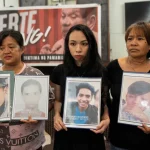CAIRO (Reuters) – Egypt launched a major assault against militants on Friday focused on the Sinai peninsula, where Islamic State has staged deadly attacks, aiming to crush their insurgency by an end of February deadline set by President Abdel Fattah al-Sisi.
The former general on Nov. 29 ordered the military to defeat militants in North Sinai within three months, after an attack on a mosque which killed more than 300 people, the deadliest such incident in the Arab world’s most populous country.
Residents said they saw warplanes flying above the Suez Canal city of Ismailia, which borders North Sinai to the west.
Palestinians in the Gaza Strip northeast of the vast desert region said they could hear explosions coming from across the border, but there was no immediate word on any casualties.
The campaign by the army, navy, air force, border patrol and police is taking place ahead of a March election in which Sisi is seeking a second term. He is widely expected to win.
In a Facebook posting on his account, Sisi wrote: “I follow with pride the heroic actions of my sons in the armed forces and police to clear Egypt’s territory of terrorist elements.”
A military spokesman said the operation would cover large parts of Sinai, but also parts of the Nile Delta and the Western Desert, where other militants have waged attacks, some believed to be staged out of neighboring Libya.
Security sources said on Thursday the operation, which had been in planning for some time, was unprecedented in its scope, coordination and size, involving thousands of troops, but did not provide further details.
“The armed forces calls upon the Egyptian people in all parts of the country to closely cooperate with law enforcement forces to confront terrorism, uproot it and immediately report any elements threatening the security and stability of the country,” military spokesman, Colonel Tamer al-Rifai, said in a televised address.
Rifai said in a second statement the air force had targeted militant hide-outs in north and central Sinai, while the navy tightened its maritime control to cut off supply lines.
A security source told Reuters on Thursday that security measures had been tightened with increased patrols in North Sinai provincial capital al-Arish and checks of residents.
State television said on Friday that all schools in North Sinai had been ordered shut from Saturday until further notice.
The Suez Canal Authority chairman said the international waterway was operating normally.
Separately, the interior ministry said in a statement that security forces killed three suspected members of Hasm, a group that emerged in 2014 and has claimed several attacks on security forces, in an exchange of gunfire in Cairo.
Egypt accuses Hasm of being a militant wing of the Muslim Brotherhood, the country’s oldest Islamist movement which Cairo outlawed in 2013. The Muslim Brotherhood denies any connection and says it strives only for peaceful political change.
Police also said they arrested 14 other suspected militants, whom they accuse of plotting attacks ahead of the elections, in various provinces throughout the country and confiscated a number of guns and explosives.
DEADLINE AHEAD OF ELECTION
The three-month deadline Sisi gave the military would expire at the end of February.
The success or failure of the military’s latest push will most likely not affect the result of the March 26-28 election. Sisi faces only a single, last-minute challenger who had previously said he supported the incumbent.
All opposition figures thought to pose a serious challenge to Sisi have pulled out of the race, accusing the government of underhand tactics to ensure Sisi an easy win. Sisi says there is equal opportunity for all candidates and that the election will be free and transparent
Egypt’s military has struggled to put down the Islamic State insurgency in Sinai since the group set up a branch there in 2014. Islamist attacks against the army and police in Sinai had begun to escalate the previous year, and have killed hundreds of soldiers and policemen.
Sisi led the military overthrow of former Islamist president Mohamed Mursi in 2013, and was elected in a landslide vote the following year.
Sisi’s critics say support for the former military commander has eroded because of tough economic reforms and a crackdown on dissidents.
His supporters say such measures are necessary to ensure stability in a country which was rocked by unrest following a 2011 uprising that toppled former leader Hosni Mubarak.







